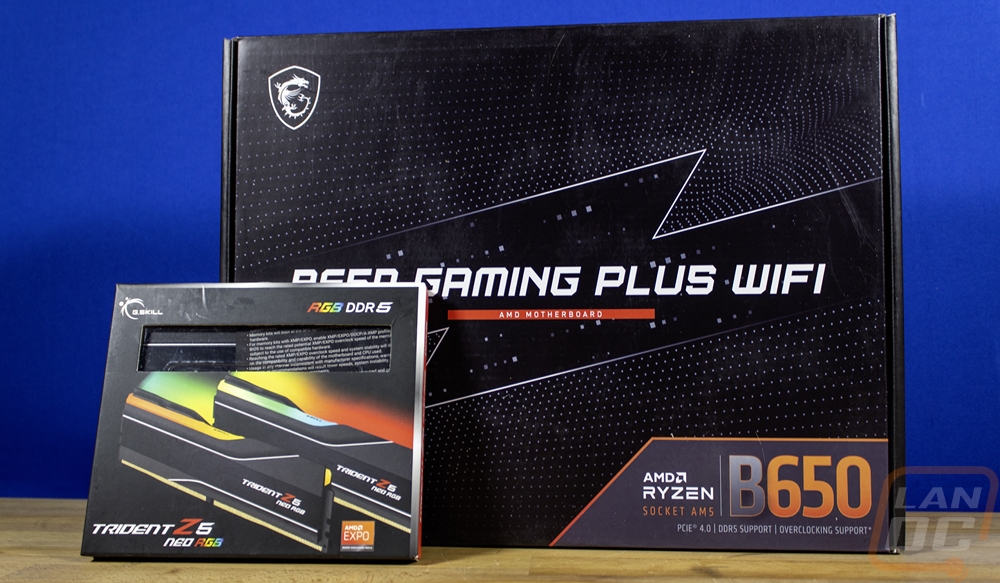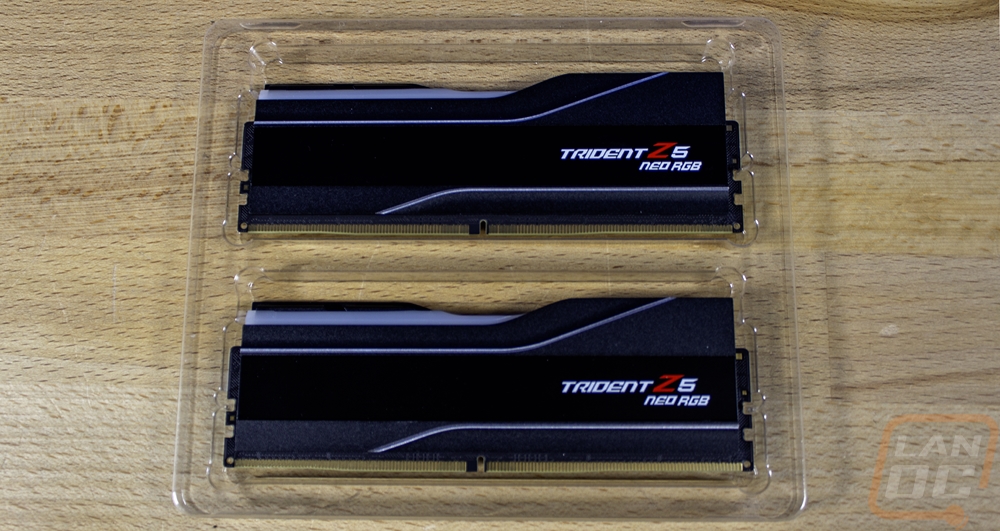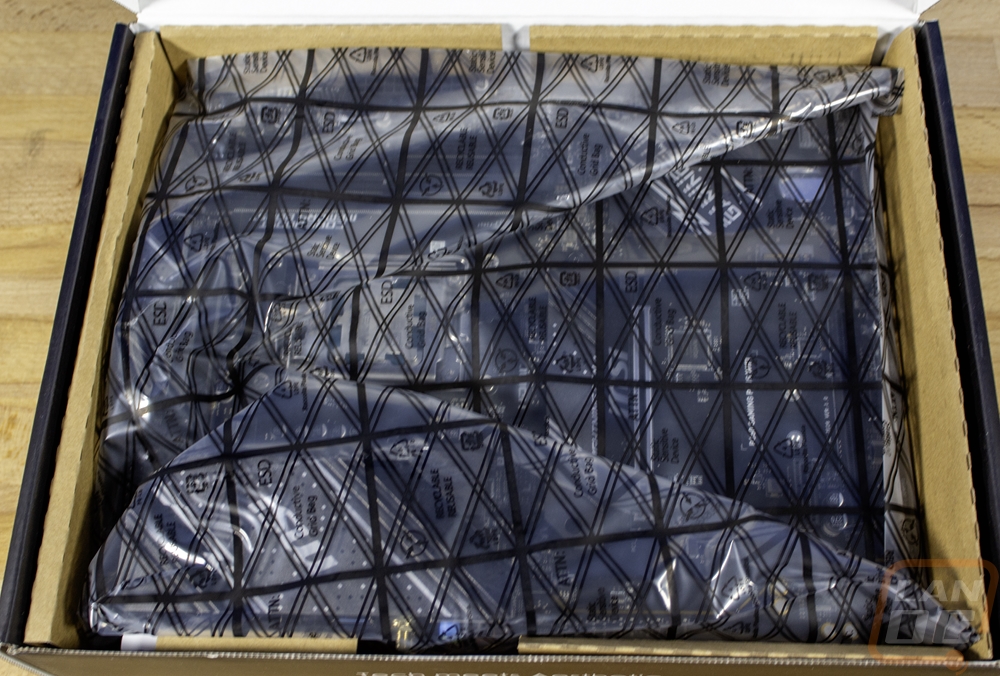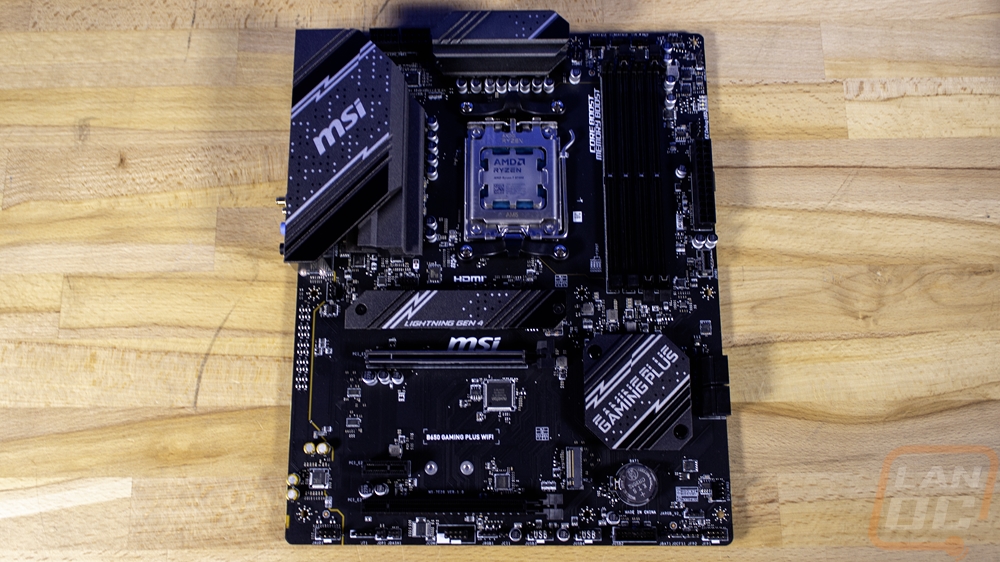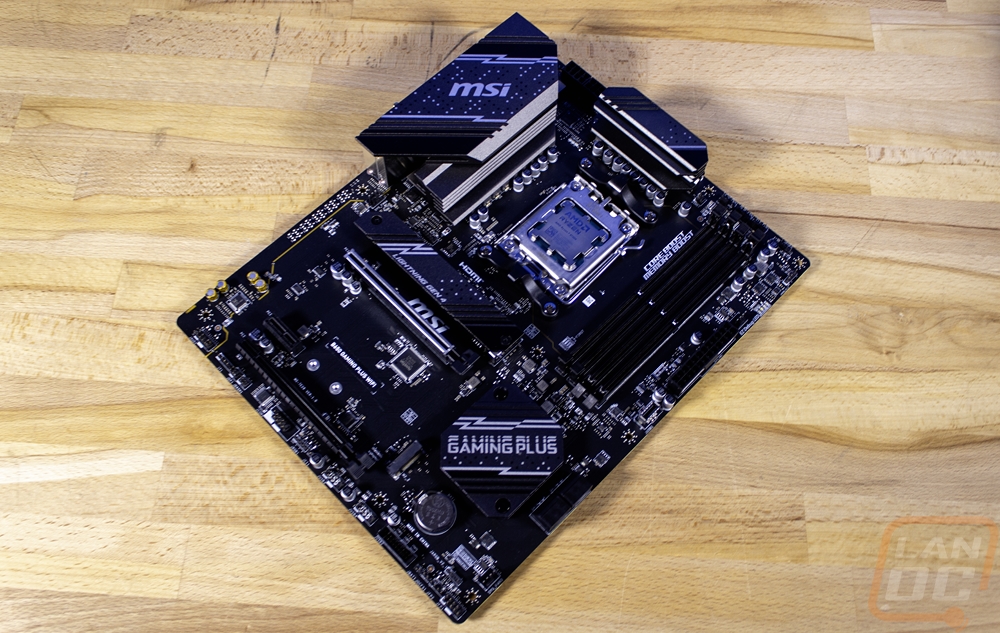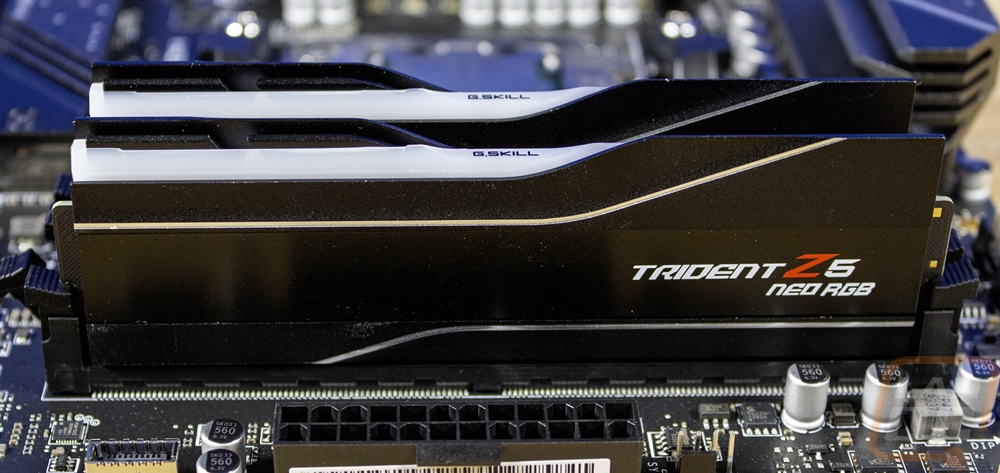It’s been a surprisingly busy 2024 with a list of different GPU launches that were all announced at CES. AMD didn’t just announce the RX 7600 XT at CES however, they also introduced a new line of CPUs their Ryzen 8000G Series, and a few new SKUs in the older Ryzen 5000 Series as well for AM4 users. Today I’m going to check out two of the new 8000G Series CPUs, the Ryzen 7 8700G and Ryzen 5 8600G which will be hitting stores on the 31st. They are Zen 4 CPUs with upgraded integrated GPU capabilities including AI processing as well with an integrated NPU on both the 8700G and 8600G. Onboard graphics performance is an area that we always test and keep an eye on with included so I’m excited to see what AMD’s promise of “fastest built-in graphics in its class” will mean for actual gameplay so let’s dive in and see what they are capable of.
Product Name: AMD Ryzen 8000G Series
Review Samples Provided by: AMD
Written by: Wes Compton
Amazon Affiliate Links:
|
|
Ryzen 7 8700G |
Ryzen 5 8600G |
Ryzen 5 8500G |
Ryzen 3 8300G |
|
MSRP |
$329 |
$229 |
$176 |
N/A |
|
Architecture |
Zen 4 |
2 x "Zen4" 4 x "Zen4c" |
1 x "Zen4" 3 x "Zen4c" |
|
|
# of CPU Cores |
8 |
6 |
4 |
|
|
Multithreading (SMT) |
Yes |
|||
|
# of Threads |
16 |
12 |
8 |
|
|
Max. Boost Clock |
Up to 5.1GHz |
Up to 5.0GHz |
Up to 4.9GHz |
|
|
Max Zen4c Clock |
N/A |
Up to 3.7GHz |
Up to 3.6GHz |
|
|
Base Clock |
4.2GHz |
4.3GHz |
3.5GHz |
3.4GHz |
|
Zen4c Base Clock |
N/A |
3.2GHz |
||
|
L2 Cache |
8MB |
6MB |
4MB |
|
|
L3 Cache |
16MB |
8MB |
||
|
Default TDP |
65W |
|||
|
AMD Configurable TDP (cTDP) |
45-65W |
|||
|
Processor Technology for CPU Cores |
TSMC 4nm FinFET |
|||
|
CPU Compute Die (CCD) Size |
178mm² |
137mm² |
||
|
Package Die Count |
1 |
|||
|
Unlocked for Overclocking |
Yes |
No |
||
|
AMD EXPO™ Memory Overclocking Technology |
Yes |
|||
|
Precision Boost Overdrive |
Yes |
|||
|
Curve Optimizer Voltage Offsets |
Yes |
|||
|
AMD Ryzen™ Master Support |
Yes |
|||
|
CPU Socket |
AM5 |
|||
|
CPU Boost Technology |
Precision Boost 2 |
|||
|
Instruction Set |
x86-64 |
|||
|
Supported Extensions |
AES, AMD-V, AVX, AVX2, AVX512, FMA3, MMX(+), SHA, SSE, SSE2, SSE3, SSE4.1, SSE4.2, SSE4A, SSSE3, x86-64 |
|||
|
Max. Operating Temperature (Tjmax) |
95°C |
|||
|
PCI Express® Version |
PCIe® 4.0 |
|||
|
Native PCIe® Lanes (Total/Usable) |
20 / 16 |
20 / 16 |
14 / 10 |
14 / 10 |
|
NVMe Support |
Boot, RAID0, RAID1 |
|||
|
System Memory Type |
DDR5 |
|||
|
Memory Channels |
2 |
|||
|
Max. Memory |
256GB |
|||
|
Graphics Capabilities |
||||
|
Graphics Model |
AMD Radeon 780M |
AMD Radeon 760M |
AMD Radeon 740M |
|
|
Graphics Core Count |
12 |
8 |
4 |
|
|
Graphics Frequency |
2900 MHz |
2800 MHz |
2600 MHz |
|
What is the Ryzen 8000G Series
Well, you might be wondering exactly what the 8000G Series is all about and while this is the first CPUs from the 8000 Series the G lets us know that these are focused on onboard graphics performance, pairing that alongside a solid CPU as well which means that in the future you can upgrade to a dedicated GPU if needed or use the CPU in more demanding CPU applications. In AMDs presentation, they highlight the 8000G Series as the fastest desktop PC processor graphics in the world. This isn’t too big of a surprise as AMD has really been leading that area for a while. What is the most exciting thing in my eyes however is that the 700M graphics used here supports AMD HYPR-RX and Fluid Motion Frames. Those technologies help see big performance improvements and AMDs examples showed it giving a 75% performance uplift across a range of modern titles and with those demanding titles it is a way to get smooth 60+ FPS gaming WITHOUT a dedicated GPU and I don’t have to remind everyone just how much any of the video cards cost these days.
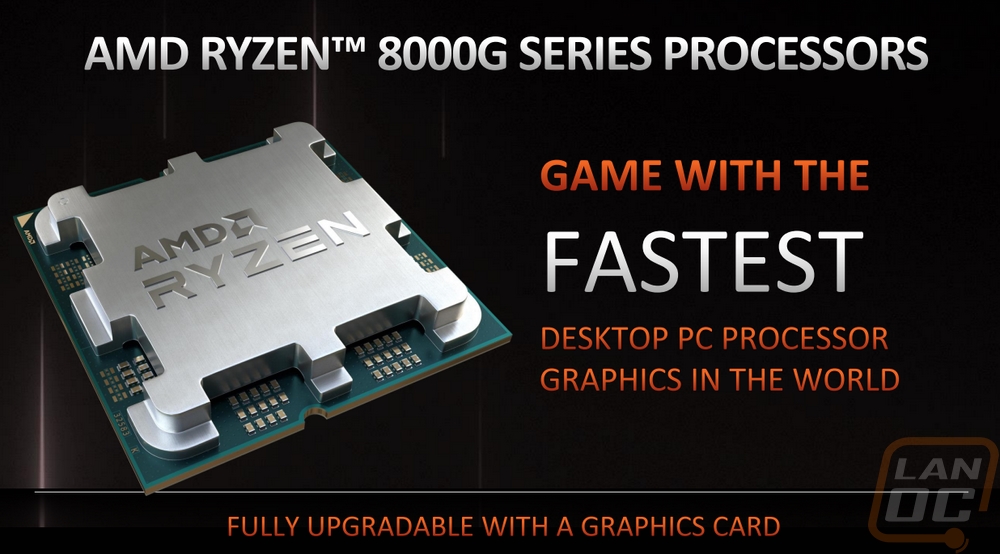
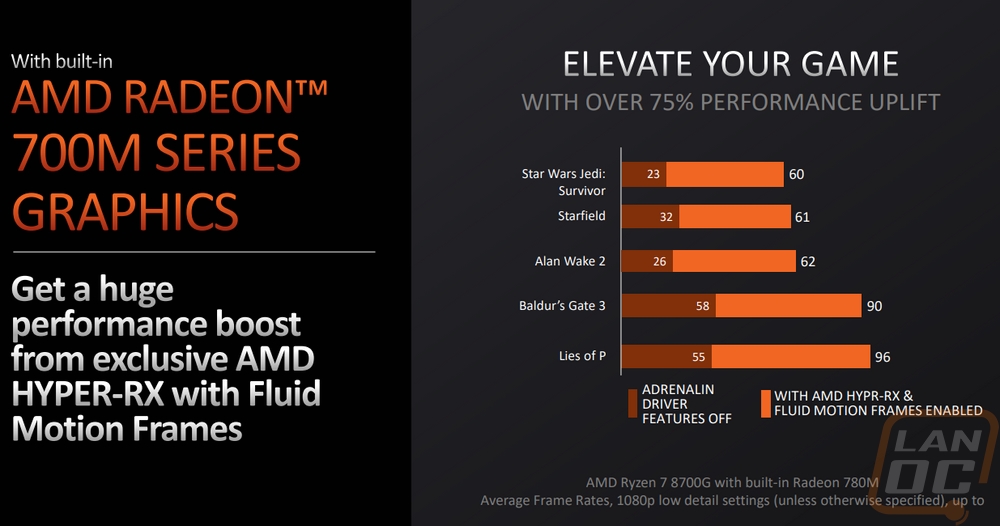
One of the other big features with two out of the four 8000G CPUs is the inclusion of a proper NPU for dedicated AI engine processing. AI is of course the big buzzword these days but a lot of software is integrating it. Having dedicated processing will help keep that load off of the CPU. AMD did give a nice list showing examples of some of the 100 different situations that are supported currently and you might think that you won’t need it but software like Zoom and OBS use it for effects and green screen use and a lot of non-power users would be doing those things. That doesn’t include other aspects like video, audio, and photo editing which a majority of big names there are using it in one way or another.
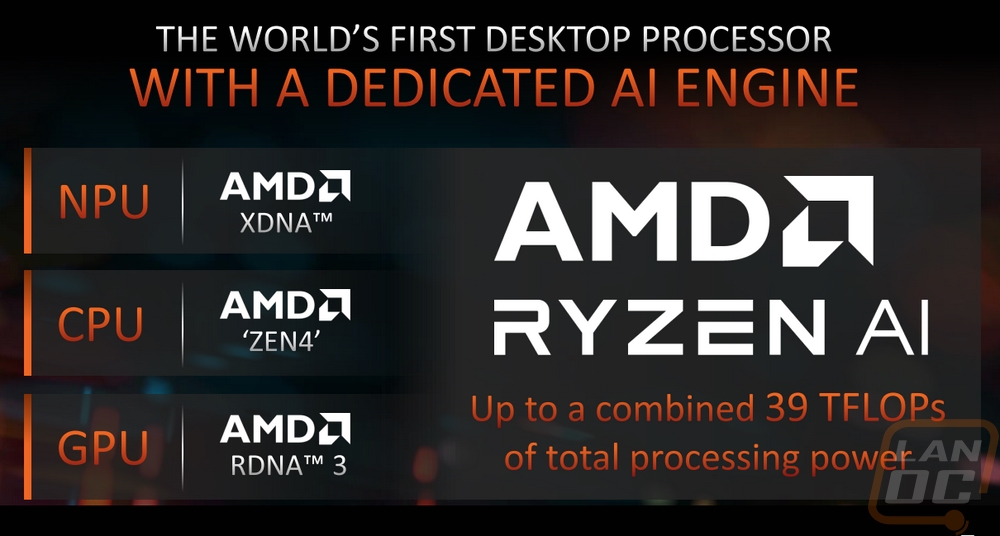
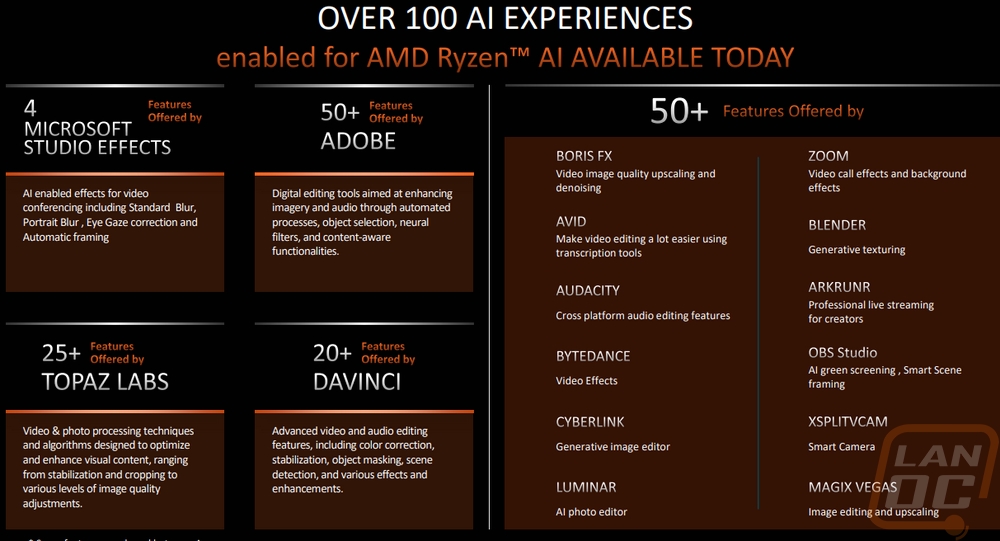
So there are four new CPUs and like I mentioned before two of those (the 8700G and 8600G) support Ryzen AI. What else do they have going on? Well, there are three different levels of integrated graphics. They are all from the Radeon 700M series but the top-end Ryzen 7 8700G has 780M graphics whereas the 8600G has 760M and the 8500G and 8300G both have Radeon 740M graphics. Their presentation doesn’t show it but the 780M iGPU has 12 cores, the 760M has 8 cores, and the 740M has 4 cores which should help give a good idea of their overall performance between each other. The CPU side of things break down similar to the normal Ryzen lineups. The Ryzen 7 8700G has an 8-core CPU with 16 threads and can boost up to 5.1 GHz and has a 24MB infinity cache. The Ryzen 5 8600G has 6 cores and 12 threads with a boost clock speed of up to 5.0 GHz and has a 22MB cache. The 8500G is similar with the same core count and cache but has that lower model iGPU and doesn’t have Ryzen AI. Then the Ryzen 3 8300G has 4 cores and 8 threads with a 4.9 GHz max boost and a smaller 12 MB cache. That last one is system builder only so it won’t hit stores. All four have the same 65-watt TDP. When you see where they fit in with the rest of AMDs CPUs in the full list the 8700G is similar to the 7700X but with a lower boost and base clock speed and cache. It and the others also only support PCIe Gen 4, not Gen 5. For pricing the 8700G has a $329 suggested price, the 8600G is suggested to be $229, and then the 8500G is suggested at $176 so they have really covered a range of pricing as well. They have kept the pricing for the 8700G down under the 7700X which is selling for $349 right now.
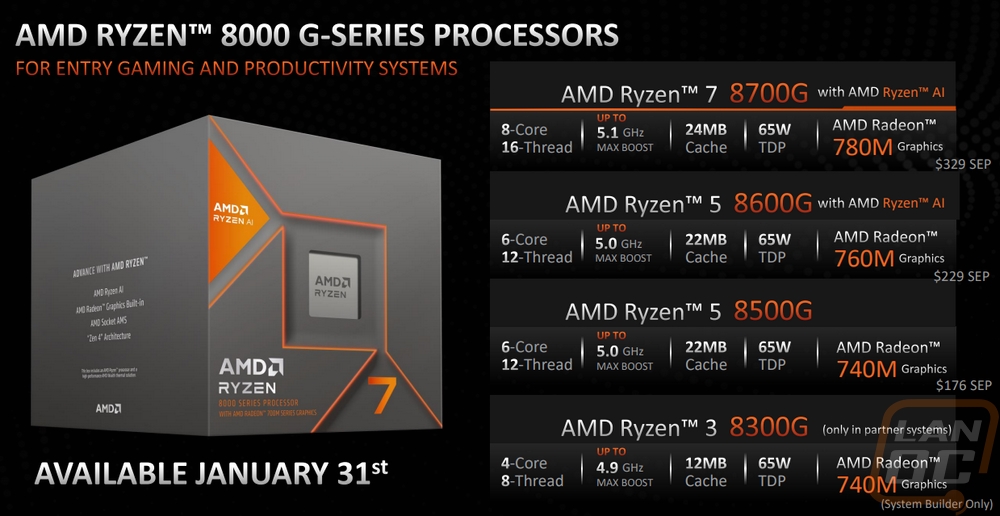
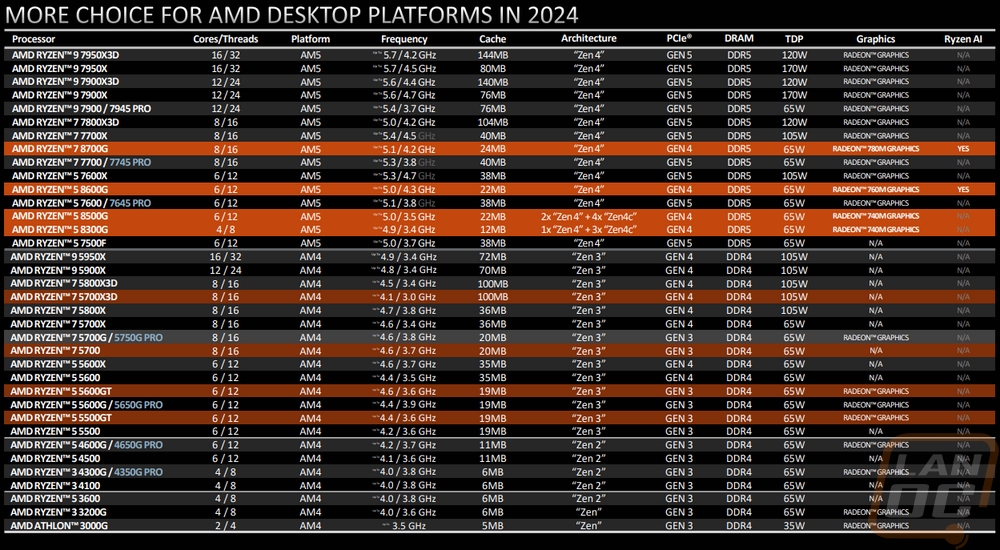
AMD did send over the full packaging for both the Ryzen 7 8700G and Ryzen 5 8600G and while the boxes do have that signature Ryzen grey and orange theme. They have added a highlight for Ryzen AI support on these two CPUs on the left side of the front of the box. You still get a cutout that lets you see the actual CPU as well right on the front and the Ryzen 5 and Ryzen 7 lines are prominent on the front with a large 5 and 7 to help let people know the pecking order here. They do have two different sized boxes though even with everything else being basically the same. That is because while they do have the same 65-watt TGP they come with different wrath coolers.









The 8700G comes with what looks like the Wrath Spire and the 8600G has the shorter Wrath Stealth. They have the same aluminum heatsink design and come with thermal paste pre-applied. They also use the screw mount design which is so much better than using the old school plastic clips in my opinion. Of course, the larger Spire has better cooling capabilities. Really though I will still prefer running better aftermarket cooling, but getting a cooler to use at the start is always nice and really fits with the theme of the 8000G Series where you get the best possible integrated graphics but also get CPUs capable of taking advantage of a dedicated GPU later on.





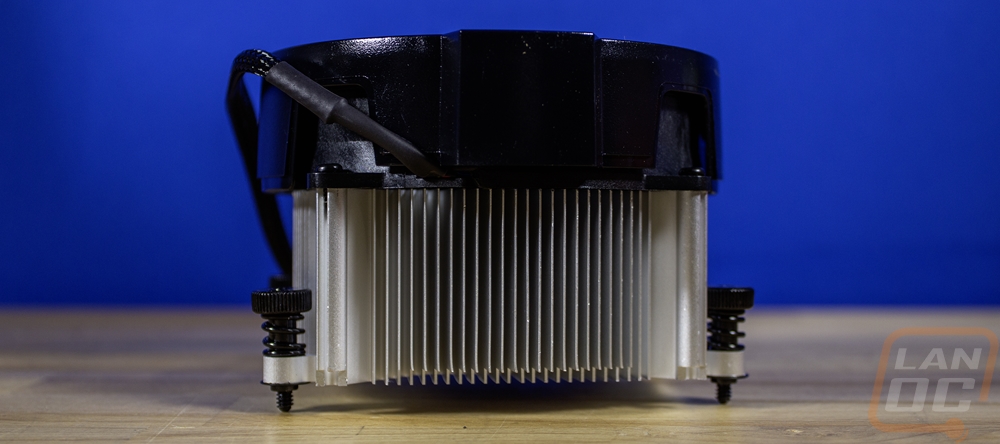


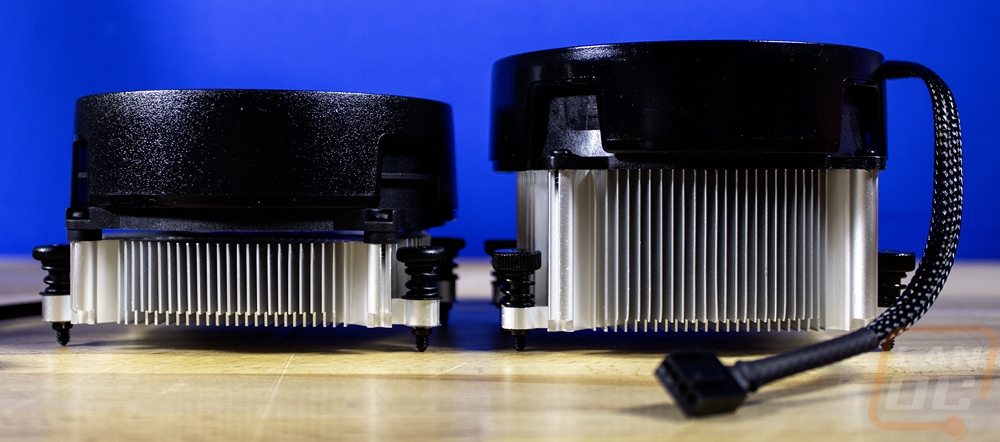
All of the new CPUs are AM5 which means they don’t have pins. The heatspreader design has that unique X with a plus sign shape and they do have the AMD Ryzen branding laser etched in a large font across the top of the heatspreader. It also has the model number and manufacturing information as well as the serial number and more.
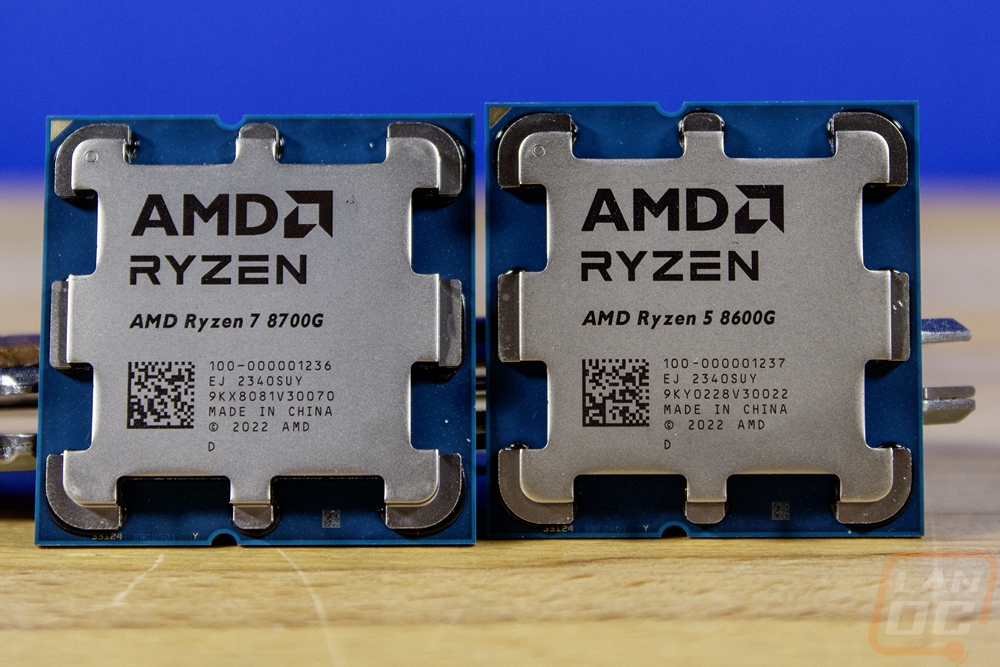
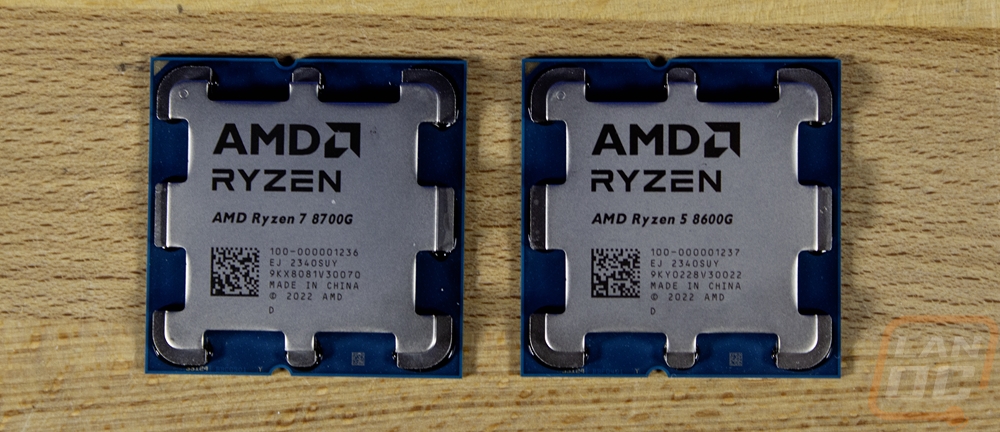
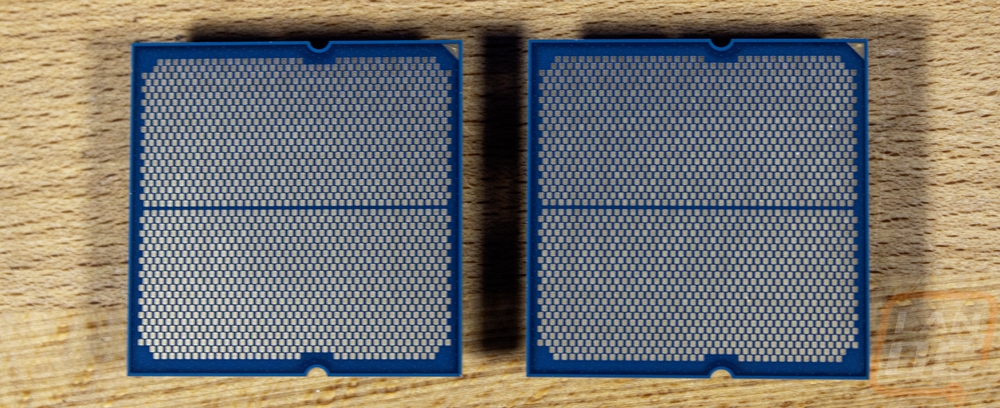
Before getting into testing I did want to point out that AMD did send over a motherboard to go with the two CPUs for testing as well as a memory kit. I would normally test on our ASUS ROG Crosshair X670E Hero but they went with a few specific boards just to make sure members of the press had the correct BIOS ahead of the launch. They sent the MSI B650 Gaming Plus Wifi and really that is a more appropriate motherboard to go with these CPUs. The memory kit was similar to what I ran on our AM5 testbench the G.Skill Trident Z5 Neo RGB 6400 MHz, our normal kit is a 6000 MHz non-RGB version of the same kit.
